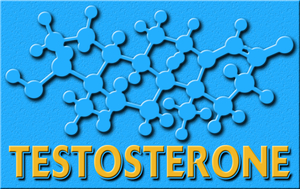Introduction
In recent years, the intersection of bodybuilding and eating disorders has garnered significant attention within the medical community. Traditionally viewed as a female-centric issue, eating disorders are increasingly recognized as a concern among males, particularly those engaged in bodybuilding. This article delves into a cross-sectional study involving over 500 American male participants, exploring the intricate relationship between bodybuilding practices and the development of eating disorders. Understanding this connection is crucial for healthcare providers to offer targeted interventions and support.
Study Methodology
The study was conducted across various fitness centers and bodybuilding communities in the United States. Participants were selected based on their active involvement in bodybuilding, defined as regular weight training and dietary management aimed at muscle enhancement. The research employed validated questionnaires to assess the prevalence of eating disorders, including anorexia nervosa, bulimia nervosa, and binge eating disorder. Additionally, participants' bodybuilding practices, such as supplement use and dietary habits, were meticulously documented.
Prevalence of Eating Disorders
The findings revealed a concerning prevalence of eating disorders among the participants. Approximately 15% of the cohort met the diagnostic criteria for an eating disorder, with bulimia nervosa being the most common at 8%, followed by binge eating disorder at 5%, and anorexia nervosa at 2%. These statistics underscore the need for increased awareness and screening within bodybuilding communities.
Bodybuilding Practices and Eating Disorders
A significant correlation was observed between certain bodybuilding practices and the incidence of eating disorders. For instance, the use of performance-enhancing supplements was notably higher among those diagnosed with eating disorders. Participants with bulimia nervosa reported a higher frequency of using protein powders and fat burners, suggesting a potential link between the desire for rapid physique transformation and disordered eating behaviors.
Moreover, dietary practices such as strict calorie counting and macronutrient tracking were prevalent among those with eating disorders. These practices, while common in bodybuilding, can exacerbate the risk of developing disordered eating when taken to extremes. The pressure to achieve an idealized body image, often perpetuated by media and social media, may further contribute to these behaviors.
Psychological Factors
Psychological factors played a pivotal role in the relationship between bodybuilding and eating disorders. Participants with eating disorders reported higher levels of body dissatisfaction and lower self-esteem compared to their counterparts without eating disorders. The relentless pursuit of muscularity and the fear of losing muscle mass were recurrent themes among those affected, highlighting the psychological toll of bodybuilding when not managed healthily.
Implications for Healthcare Providers
The study's findings have significant implications for healthcare providers working with male bodybuilders. Routine screening for eating disorders should be integrated into the care of individuals engaged in bodybuilding. Education on the risks of extreme dietary and supplement practices is essential, as is fostering a supportive environment that encourages healthy body image and self-esteem.
Additionally, healthcare providers should be attuned to the psychological aspects of bodybuilding. Offering counseling and mental health support can be instrumental in preventing and treating eating disorders. Collaborative efforts with fitness professionals to promote balanced training and nutrition practices can also mitigate the risk of developing disordered eating.
Conclusion
The cross-sectional study of over 500 American males underscores a notable association between bodybuilding and eating disorders. The prevalence of these disorders within the bodybuilding community necessitates a multifaceted approach to prevention and treatment. By understanding the interplay of physical practices, supplement use, and psychological factors, healthcare providers can better support male bodybuilders in achieving their goals without compromising their mental and physical health. As the field of sports medicine continues to evolve, addressing this critical issue will be paramount in fostering a healthier bodybuilding culture.
Contact Us Today For A Free Consultation

- Bodybuilding: A Therapeutic Strategy Against Obesity and Metabolic Syndrome in American Males [Last Updated On: February 21st, 2025] [Originally Added On: February 21st, 2025]
- Exploring the Synergy Between Bodybuilding and Diabetes Management: A Comprehensive Guide for American Males [Last Updated On: February 27th, 2025] [Originally Added On: February 27th, 2025]
- Exploring the Inspiring Ties: Physical Fitness and Mental Health Enhancement [Last Updated On: March 2nd, 2025] [Originally Added On: March 2nd, 2025]
- Integrating Physical Therapy Insights into Bodybuilding: Enhancing Benefits and Minimizing Risks [Last Updated On: March 3rd, 2025] [Originally Added On: March 3rd, 2025]
- Effective Nutritional Strategies for Optimal Bodybuilding Results [Last Updated On: March 4th, 2025] [Originally Added On: March 4th, 2025]
- Exploring Bodybuilding: Impacts on Health, Hormones, and Body Composition in American Males [Last Updated On: March 5th, 2025] [Originally Added On: March 5th, 2025]
- Exploring Bodybuilding's Role in Cardiovascular Health and Disease Prevention [Last Updated On: March 6th, 2025] [Originally Added On: March 6th, 2025]
- Orthopedic Risks in Bodybuilding: Strategies for Prevention and Long-Term Musculoskeletal Health [Last Updated On: March 7th, 2025] [Originally Added On: March 7th, 2025]
- The Hidden Dangers of Anabolic Steroids: Impact on Health and Fitness Goals [Last Updated On: March 8th, 2025] [Originally Added On: March 8th, 2025]
- Unveiling the Nexus of Longevity and Bodybuilding: Insights from Geriatric Medicine [Last Updated On: March 9th, 2025] [Originally Added On: March 9th, 2025]
- Optimizing Hormonal Dynamics in Bodybuilding: Strategies for Muscle Growth and Health [Last Updated On: March 9th, 2025] [Originally Added On: March 9th, 2025]
- Sculpting More Than Muscle: The Psychological Benefits of Bodybuilding for American Males [Last Updated On: March 14th, 2025] [Originally Added On: March 12th, 2025]
- Exploring the Impact of Bodybuilding on Sleep Patterns and Quality in American Males [Last Updated On: March 13th, 2025] [Originally Added On: March 13th, 2025]
- Harnessing the Power of Bodybuilding: A Therapeutic Approach to Managing Chronic Pain in American Males [Last Updated On: March 15th, 2025] [Originally Added On: March 15th, 2025]
- Bodybuilding: A Promising Strategy for Hypertension Management in American Males [Last Updated On: March 16th, 2025] [Originally Added On: March 16th, 2025]
- Health Risks of Competitive Bodybuilding: Steroids, Nutrition, and Psychological Impacts [Last Updated On: March 16th, 2025] [Originally Added On: March 16th, 2025]
- Bodybuilding Boosts Immune Health: A Guide for American Men [Last Updated On: March 18th, 2025] [Originally Added On: March 18th, 2025]
- Bodybuilding: A Holistic Approach to Managing Stress and Anxiety in American Males [Last Updated On: March 20th, 2025] [Originally Added On: March 20th, 2025]
- Bodybuilding's Impact on Endocrine System: Hormonal Health in American Males [Last Updated On: March 20th, 2025] [Originally Added On: March 20th, 2025]
- Bodybuilding's Role in Enhancing Addiction Recovery for American Males [Last Updated On: March 20th, 2025] [Originally Added On: March 20th, 2025]
- Body Building Myths Debunked: Health Facts for American Males [Last Updated On: March 20th, 2025] [Originally Added On: March 20th, 2025]
- Integrating Bodybuilding into Post-Surgery Rehabilitation for American Males: A Physician's Guide [Last Updated On: March 20th, 2025] [Originally Added On: March 20th, 2025]
- Preventing Bodybuilding Injuries: Techniques, Recovery, and Nutrition for American Males [Last Updated On: March 21st, 2025] [Originally Added On: March 21st, 2025]
- Bodybuilding's Role in Combating Lifestyle Diseases in American Males [Last Updated On: March 21st, 2025] [Originally Added On: March 21st, 2025]
- Bodybuilding: A Promising Intervention for Osteoporosis in American Males [Last Updated On: March 22nd, 2025] [Originally Added On: March 22nd, 2025]
- Asthma and Bodybuilding: Safety, Benefits, and Tailored Programs for American Males [Last Updated On: March 22nd, 2025] [Originally Added On: March 22nd, 2025]
- Debunking Menstrual Cycle Myths in Bodybuilding: A Scientific Perspective for American Males [Last Updated On: March 22nd, 2025] [Originally Added On: March 22nd, 2025]
- Holistic Health and Bodybuilding: Enhancing American Males' Well-being [Last Updated On: March 22nd, 2025] [Originally Added On: March 22nd, 2025]
- Orthostatic Hypotension Risks and Prevention for American Male Bodybuilders [Last Updated On: March 22nd, 2025] [Originally Added On: March 22nd, 2025]
- Essential Vitamins and Supplements for American Male Bodybuilders: A Medical Review [Last Updated On: March 22nd, 2025] [Originally Added On: March 22nd, 2025]
- Bodybuilding Reduces Colon Cancer Risk in American Males: Fitness and Health Benefits [Last Updated On: March 23rd, 2025] [Originally Added On: March 23rd, 2025]
- Bodybuilding and Kidney Health: Safe Practices for American Males [Last Updated On: March 23rd, 2025] [Originally Added On: March 23rd, 2025]
- Bodybuilding and Dementia Risk: Exploring Cognitive Benefits for American Males [Last Updated On: March 23rd, 2025] [Originally Added On: March 23rd, 2025]
- Bodybuilding Enhances Lung Health: Exercises, Nutrition, and Monitoring for American Males [Last Updated On: March 23rd, 2025] [Originally Added On: March 23rd, 2025]
- Bodybuilding and Gut Health: Optimizing Performance for American Males [Last Updated On: March 23rd, 2025] [Originally Added On: March 23rd, 2025]
- Bodybuilding's Impact on Young Males: Benefits, Risks, and Growth Considerations [Last Updated On: March 24th, 2025] [Originally Added On: March 24th, 2025]
- Bodybuilding and Heart Health: Risks and Cardiologist's Insights for American Males [Last Updated On: March 24th, 2025] [Originally Added On: March 24th, 2025]
- Genetic Factors in Bodybuilding: Muscle Growth, Strength, and Recovery Optimization [Last Updated On: March 24th, 2025] [Originally Added On: March 24th, 2025]
- Bodybuilding: A Natural Approach to Managing Arthritis in American Males [Last Updated On: March 24th, 2025] [Originally Added On: March 24th, 2025]
- Liquid Diets for Bodybuilders: Medical Critique and Risks [Last Updated On: March 24th, 2025] [Originally Added On: March 24th, 2025]
- Bodybuilding Boosts Cognitive Health: A Holistic Approach for American Males [Last Updated On: March 25th, 2025] [Originally Added On: March 25th, 2025]
- Bodybuilding Enhances Mental Resilience in American Men: A Comprehensive Analysis [Last Updated On: March 25th, 2025] [Originally Added On: March 25th, 2025]
- Metabolic Effects of Bodybuilding on American Males: Muscle Growth and Hormonal Changes [Last Updated On: March 25th, 2025] [Originally Added On: March 25th, 2025]
- Bodybuilding's Role in Managing Mood Disorders: A Holistic Approach for American Males [Last Updated On: March 25th, 2025] [Originally Added On: March 25th, 2025]
- Bodybuilding: A Comprehensive Anti-Aging Strategy for American Males [Last Updated On: March 26th, 2025] [Originally Added On: March 26th, 2025]
- Injury Prevention Strategies for American Male Bodybuilders: A Holistic Approach [Last Updated On: March 26th, 2025] [Originally Added On: March 26th, 2025]
- Bodybuilding Enhances Postnatal Recovery for American Fathers: Physical and Mental Benefits [Last Updated On: March 26th, 2025] [Originally Added On: March 26th, 2025]
- Body Building Enhances Life Quality for Parkinson's Patients: A Holistic Approach [Last Updated On: March 26th, 2025] [Originally Added On: March 26th, 2025]
- Sickle Cell Disease and Body Building: Benefits, Risks, and Safe Practices for American Males [Last Updated On: March 27th, 2025] [Originally Added On: March 27th, 2025]
- Combatting Sarcopenia: Bodybuilding Strategies for American Men's Muscle Health [Last Updated On: March 27th, 2025] [Originally Added On: March 27th, 2025]
- Bodybuilding's Psychological Impact on American Teenage Males: Benefits and Risks [Last Updated On: March 27th, 2025] [Originally Added On: March 27th, 2025]
- Bodybuilding: A Holistic Approach to Managing Chronic Degenerative Diseases in American Males [Last Updated On: March 27th, 2025] [Originally Added On: March 27th, 2025]
- Bodybuilding's Impact on Prostate Health: Risks and Benefits for American Males [Last Updated On: March 27th, 2025] [Originally Added On: March 27th, 2025]
- Body Building Benefits for American Men with COPD: Enhancing Life Quality [Last Updated On: March 27th, 2025] [Originally Added On: March 27th, 2025]
- Bodybuilding as a Recovery Strategy for American Males Post-Chemotherapy [Last Updated On: March 27th, 2025] [Originally Added On: March 27th, 2025]
- Hydration Guidelines for American Male Bodybuilders: Enhancing Performance and Recovery [Last Updated On: March 28th, 2025] [Originally Added On: March 28th, 2025]
- Male Menopause and Body Building: Strategies for Muscle Growth and Health [Last Updated On: March 28th, 2025] [Originally Added On: March 28th, 2025]
- Bodybuilding Boosts Immune Health in American Males: Mechanisms and Benefits [Last Updated On: March 28th, 2025] [Originally Added On: March 28th, 2025]
- Bodybuilding Boosts Metabolism: Benefits and Risks for American Males [Last Updated On: March 28th, 2025] [Originally Added On: March 28th, 2025]
- Bodybuilding: A Strategic Approach to Prevent Musculoskeletal Disorders in American Males [Last Updated On: March 28th, 2025] [Originally Added On: March 28th, 2025]
- Bodybuilding as a Strategy for Managing Rheumatoid Arthritis in American Men [Last Updated On: March 28th, 2025] [Originally Added On: March 28th, 2025]
- Bodybuilding as a Therapeutic Strategy for Managing PTSD in American Males [Last Updated On: March 29th, 2025] [Originally Added On: March 29th, 2025]
- Essential Safety Measures for American Male Bodybuilders: Techniques and Precautions [Last Updated On: March 29th, 2025] [Originally Added On: March 29th, 2025]
- Bodybuilding Boosts Bone Density: Optimizing Regimen for American Males' Skeletal Health [Last Updated On: March 30th, 2025] [Originally Added On: March 30th, 2025]
- Body Building and Heart Health: Benefits, Risks, and Safe Practices for American Males [Last Updated On: March 30th, 2025] [Originally Added On: March 30th, 2025]
- Medically Supervised Bodybuilding: Safe, Effective Weight Management for American Males [Last Updated On: March 31st, 2025] [Originally Added On: March 31st, 2025]
- Bodybuilding's Impact on Hormones in American Males: Benefits and Risks [Last Updated On: April 1st, 2025] [Originally Added On: April 1st, 2025]
- Bodybuilding and Longevity: Balancing Health Benefits and Risks for American Males [Last Updated On: April 3rd, 2025] [Originally Added On: April 3rd, 2025]
- Bodybuilding Boosts Cardiovascular Health: A Comprehensive Guide for American Males [Last Updated On: April 4th, 2025] [Originally Added On: April 4th, 2025]
- Flexibility in Bodybuilding: Enhancing Performance and Health for American Males [Last Updated On: April 5th, 2025] [Originally Added On: April 5th, 2025]
- Stretching Essentials for Bodybuilding: Enhancing Growth, Preventing Injuries [Last Updated On: April 6th, 2025] [Originally Added On: April 6th, 2025]
- Bodybuilding Success: The Critical Role of Gut Health in American Males [Last Updated On: April 6th, 2025] [Originally Added On: April 6th, 2025]
- Bodybuilding: A Clinically Proven Stress Management Strategy for American Males [Last Updated On: April 6th, 2025] [Originally Added On: April 6th, 2025]
- Bodybuilding and Back Pain: Chiropractic Strategies for Prevention and Management [Last Updated On: April 9th, 2025] [Originally Added On: April 9th, 2025]
- Bodybuilding Benefits for American Males with ADHD: Focus, Discipline, and Well-being [Last Updated On: April 9th, 2025] [Originally Added On: April 9th, 2025]
- Structured Bodybuilding: Preventing Low Back Pain in American Males [Last Updated On: April 9th, 2025] [Originally Added On: April 9th, 2025]
- Bodybuilding Enhances Joint Replacement Recovery in American Males [Last Updated On: April 10th, 2025] [Originally Added On: April 10th, 2025]
- Vegetarian Bodybuilding: Optimizing Protein Intake for Muscle Growth [Last Updated On: April 10th, 2025] [Originally Added On: April 10th, 2025]
- Safe Bodybuilding During Pregnancy: Guidelines for American Males Supporting Partners [Last Updated On: April 11th, 2025] [Originally Added On: April 11th, 2025]
- Bodybuilding: A Promising Approach to Managing Sciatica in American Males [Last Updated On: April 12th, 2025] [Originally Added On: April 12th, 2025]
Word Count: 591




















